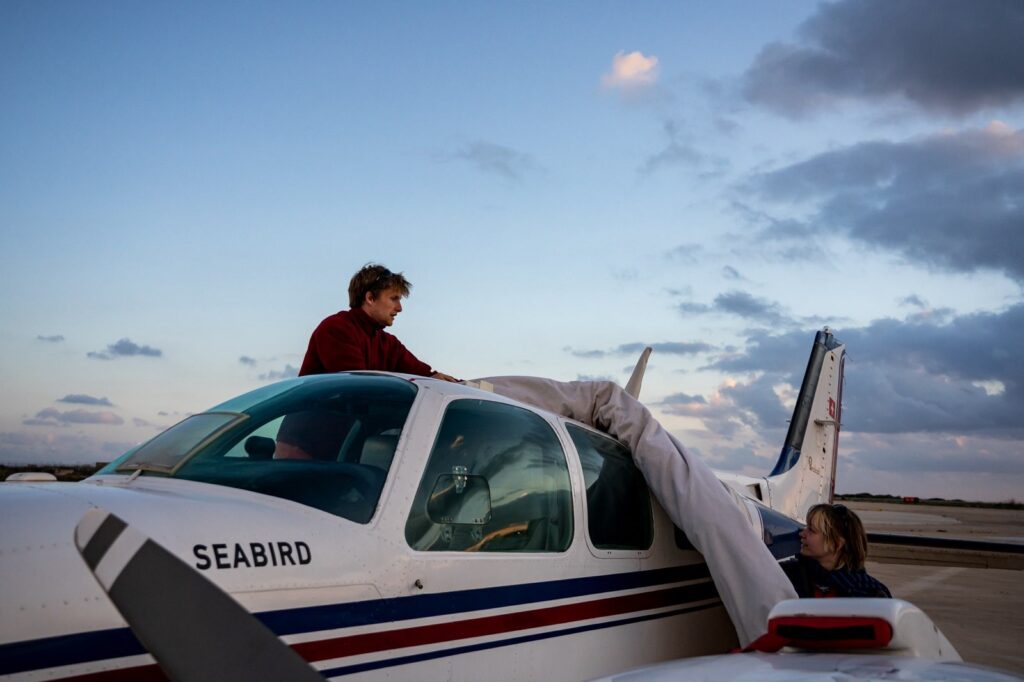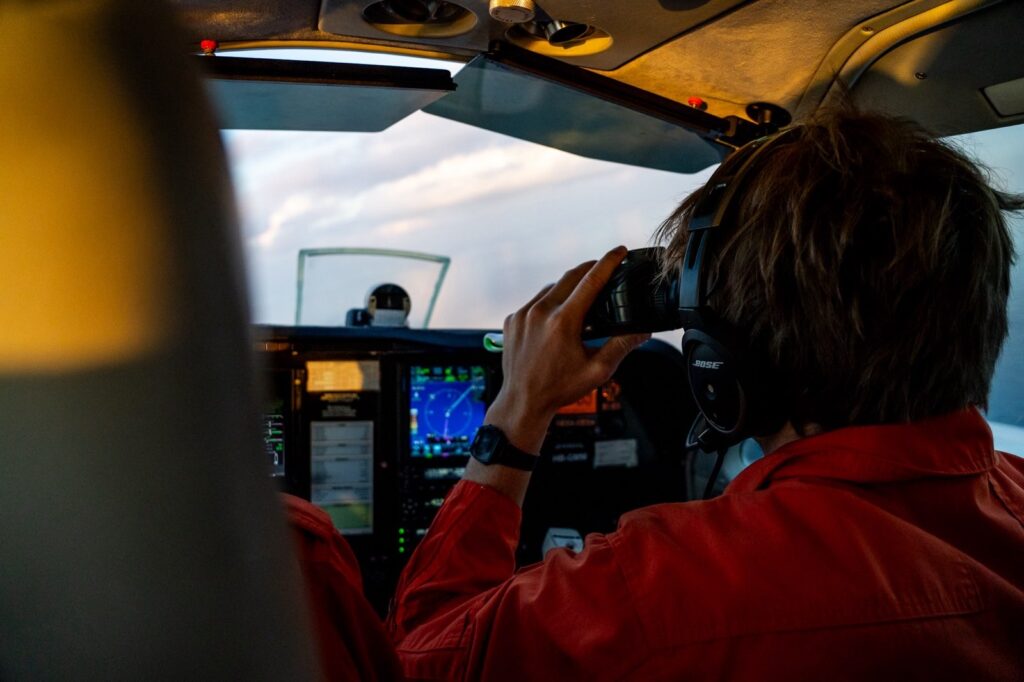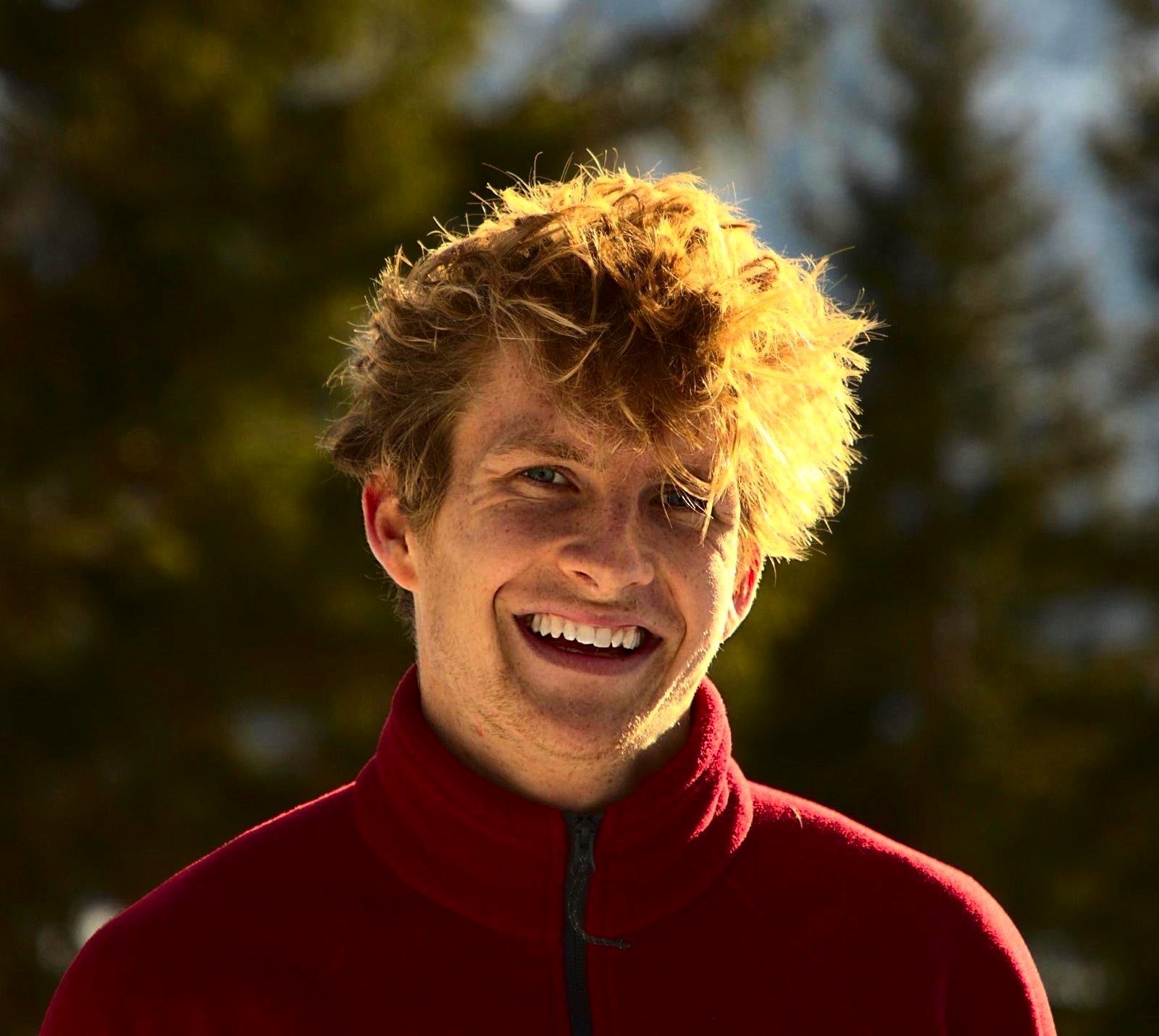Student Joseph Oertel wins Engagement Prize for his work with Sea Watch
Freiburg, 15/11/2024
Joseph Oertel is studying medicine at the University of Freiburg and volunteers with Sea Watch e.V. In 2025, the Studienstiftung des deutschen Volkes (German Academic Scholarship Foundation) honoured him with the Engagement Prize. In this interview, Oertel talks about his commitment to refugees, his tips for other students who want to get involved, and what gives him strength.

How long have you been involved with Sea Watch e.V.?
I’ve been working for Sea Watch for about two years. Before that, I was involved with the transit camps on Lesbos and in Calais. Initially, I piloted one of the dinghies on Sea Watch 3, but then switched to the airborne team after our ship was detained in Italy.
What does the Airborne team do?
The aim of Airborne is from the air to document human rights violations and support people fleeing. This involves us taking it in turns to fly two aircraft with a crew of three to five people on missions that sometimes last more than eight hours. As a civilian eye over the Mediterranean, we observe what we believe the EU is trying to hide: the practices of Frontex, Libyan militias and European states that we believe violate human rights and lead to violence, torture and death. For years, attempts have been made to criminalise us. We believe the aim behind this is to ensure that the violence and deaths in the Mediterranean can no longer be observed, reported on and charges made on this basis.
On some days over the Mediterranean we see several hundred people fleeing in boats that are completely unseaworthy. When we find boats in distress, we report this to the sea rescue centres – which unfortunately all too often remain inactive – and to surrounding ships. At such times, we have a responsibility for the people in distress at sea. Unfortunately, however, for some of them we cannot do much more after several hours of operation than document their drowning or violent deportation to Libya.
It must be burdensome to be confronted with human rights violations and suffering on a daily basis. How do you cope with these experiences?
Sea Watch offers professional supervision. In addition, all those who fly regularly receive personal counselling from trauma psychologists. Besides this very helpful support, Freiburg is a good place for me to switch off – when I come back from a mission, the first thing I do is go to the Black Forest. I cycle, go climbing and paragliding or go for a swim.
Is your volunteering limited to the semester break?
No, I’m currently working as a stand-by volunteer and have been on Lampedusa almost every month this year. I’d like to take this opportunity to thank my degree programme coordinators Sabine Binninger and Helena Kehl. There are many courses on medical degree programmes where attendance is compulsory. Being on Lampedusa so often during the semester only works because the two coordinators and some seminar leaders help me to fit the courses together like a Chinese boxes puzzle and create gaps in my schedule. My fellow students also always help me to understand the content and pass on important information from the courses. Without this support, I wouldn’t be able to volunteer alongside my studies. At the same time, my studies even benefit a little from my voluntary work, as I’m constantly learning how to stay calm and make good decisions even after eight hours of stress over the Mediterranean.
What advice would you give to other students who would also like to volunteer but don’t know how to do it alongside their studies or where to start?
The point about where to start is a good one. It helps to be aware that there are always people who oppose positive change. They benefit from the current system and therefore try to ensure there are few good places to start and many bogus solutions. So when people start to get involved, they can soon get the impression that some of the things they do are no use at all. But this is precisely when it’s important not to get discouraged, but to be smarter next time and start looking for a new starting point again – and preferably not alone, but with like-minded people. And it’s also important to maintain a good balance between your studies, private life and activism.


„If you get the impression that some of the things you do are no use at all, it’s important not to get discouraged, but to start looking for a new starting point again.“
Joseph Oertel
Student of medicine at the University of Freiburg
Do you draw strength from the moments when people on the run are saved through your efforts?
Of course I’m happy when people are safe from drowning for the time being. But I also feel a great heaviness at that moment. The people who arrive on Lampedusa are often dehydrated and hypothermic after three or more days at sea, and sometimes there are dead bodies on board. You can tell that the refugees are very tired and know that there is still so much to come. First they go through the arduous asylum process, and even if they get a positive asylum decision, they are exposed to an incredible amount of racism and discrimination in Europe.
It gives me strength to see the dedication of other people, like the Forum Solidale on Lampedusa. These are people who have been helping refugees for 20 or 30 years, without any great fanfare or spectacle, simply out of moral courage and solidarity.
The work of Sea Watch is often perceived in an extremely polarised way. Some criticise us, others see us as heroes. However, both distort the actual core of our commitment, because it should actually be quite normal to show solidarity with people who are seeking help.